
Cape Cod Camera Clubs
Cape Cod Art / ART Annual 2019 / Art & Entertainment, People & Businesses, Recreation & Activities
Writer: John Greiner-Ferris
Cape Cod Camera Clubs

Cape Cod Art / ART Annual 2019 / Art & Entertainment, People & Businesses, Recreation & Activities
Writer: John Greiner-Ferris
A Snapshot of our Times
Cape camera clubs share insights into their photographic pursuits
There’s one undeniable truth about photographers: They are all geeks, every last one of them, and they will continue to geek out on the pros and cons of Nikon vs. Canon vs. the iPhone long after everyone else has gone home. They’ll pontificate about digital vs. film, or the use of apps vs. no apps. They’ll talk ad infinitum about what even constitutes a photograph. What if it’s projected? Is it still a photograph? For these people there’s only one hope: a camera club. Antoinette Gombeda, board member of the New England Camera Club Council (NECCC), the mothership for approximately 70 camera clubs across New England, says camera clubs were made for photographers so they don’t bore anyone with their conversations. “In a camera club, everyone is interested in the same thing, and they bring people together to learn about photography,” says Gombeda.
The digital revolution democratized photography even more than it already was. While most everyone already owned a camera and was familiar with capturing light to make visual impressions (though they might not have been aware that’s actually what they were doing), now people can access the most powerful equipment and digital editing tools that were once available only to professional photographers and designers. Access to this technology has had a curious effect on the glut of images being produced not only on the Cape but also around the world. An enormous number of images—both creative and hackneyed—are being unleashed by what the camera manufacturers generally define as “enthusiasts” or “hobbyists.” Images as garish as Elvis painted on black velvet compete for our attention along with the most powerfully sublime artistic photographic statements imaginable.
Members of the three largest camera clubs residing on the Cape were interviewed for this story. A snapshot—pun intended—of these groups uncovers some interesting observations. First, while there is a wide range of image quality produced by the members, many of the images are surprisingly very good, worthy of a home on someone’s wall. And with the majority of members being of retirement age, they demolish the notion that seniors are illiterate when it comes to the digital world. Finally, just as photographers adjust their camera’s aperture, shutter speed, and ISO to capture an image, each of these three camera clubs balance their own blend of education, competition and community to offer members their own unique experience.
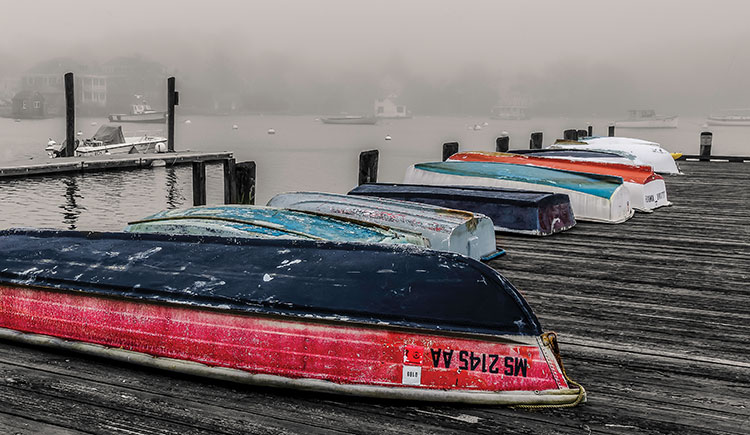
It’s a Wednesday evening at the Falmouth Art Center, and Walter and Carol Knox, president and public relations director respectively for the Upper Cape Cod Camera Club, are setting up for the night’s meeting. Members are drifting in about a half hour before the start. Among them are Jeannine Lavoie and Greg Anderson, neighbors in Bourne. Both retired, they had similar yet different reasons for joining the club.
Anderson was a photojournalist. After a career shooting film, he helped usher newspapers through the transition to digital platforms, having been responsible for digital technology at the Tacoma News Tribune, Dallas Morning News, and Seattle Times. Anderson never shot digitally for newspapers, and he resisted DSLRs in his personal work. Conversely, Lavoie, who now shoots with her iPhone and edits on an iPad with an Apple Pencil, says she immediately realized she could do some interesting things with her phone.
“I look for the beauty in life,” she says. “I don’t think so much about the technical aspects of photography but more about the aesthetics.” Like all “iPhotographers”—the term for those who shoot with smartphones—Lavoie says she relies on editing apps like Snapseed, iColorama and Distressed FX to “create more artistic interpretations of my photographs. It’s not for everyone, but I enjoy the added creativity involved.”
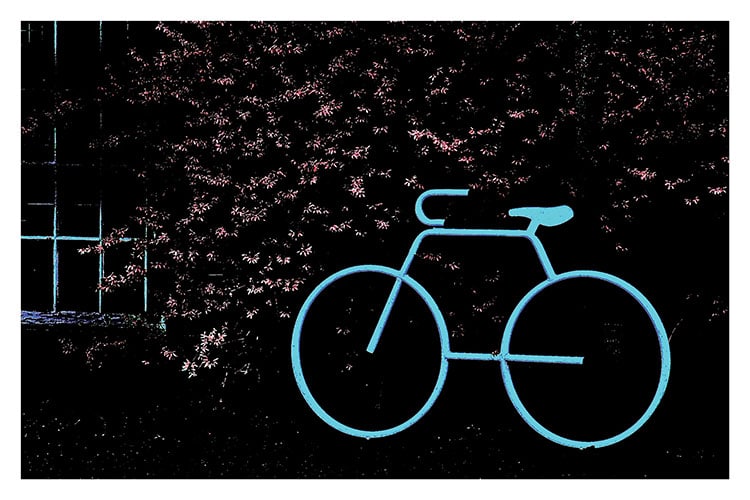
Lavoie says the camera club is great learning. “From mentors, competitions and other photographers, one learns how to improve their photographic skills in a supportive environment of people who have a passion for photography.”
For Anderson, the club has made photography fun again. “Photography was my life, and I joined the club to get back into it,” says Anderson. “And I’ve never been a fine arts photographer, which is so different from journalism.”
All three clubs interviewed participate in photo competitions, some more seriously than others. In the competitions, photographers earn points that allow them to proceed from the rank of Basic photographer to Master. “If people took it too seriously I probably wouldn’t do it,” Anderson says. “It would be too frustrating. If you show an image to five different judges, you’ll get five different opinions.
“I use competitions for education,” Anderson continues. “Sometimes I listen to the judge, sometimes I don’t, but it’s nice to get feedback. Most people are the worst editors of their own work.”
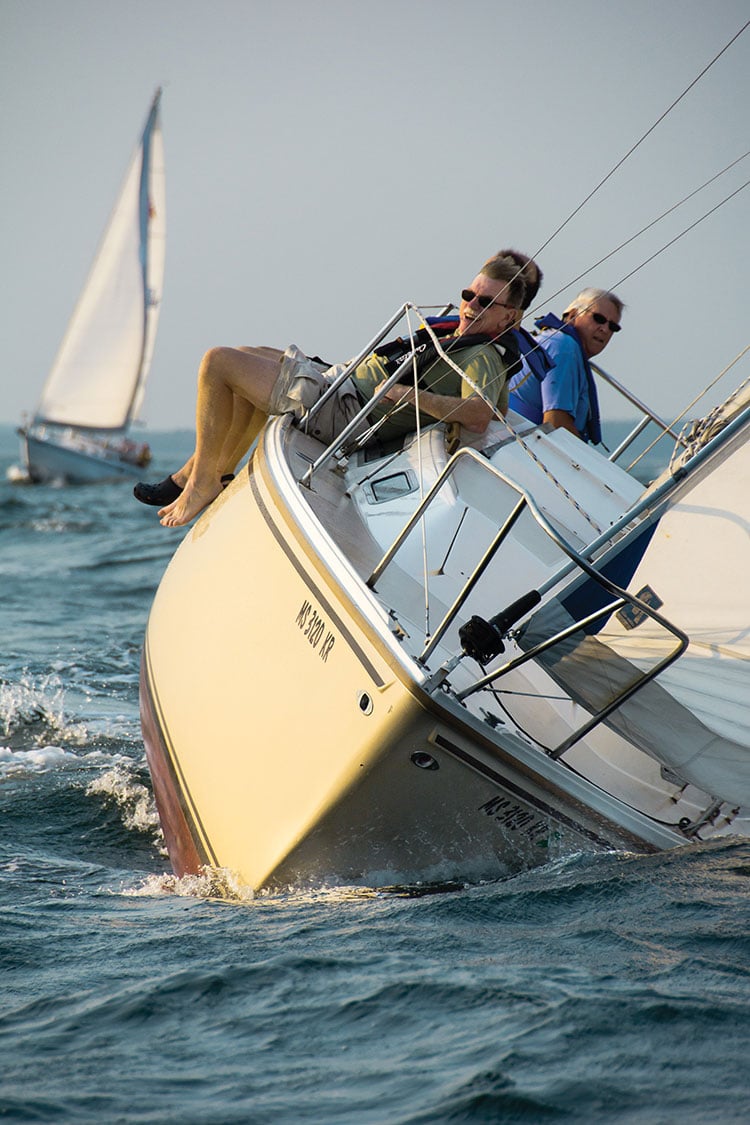
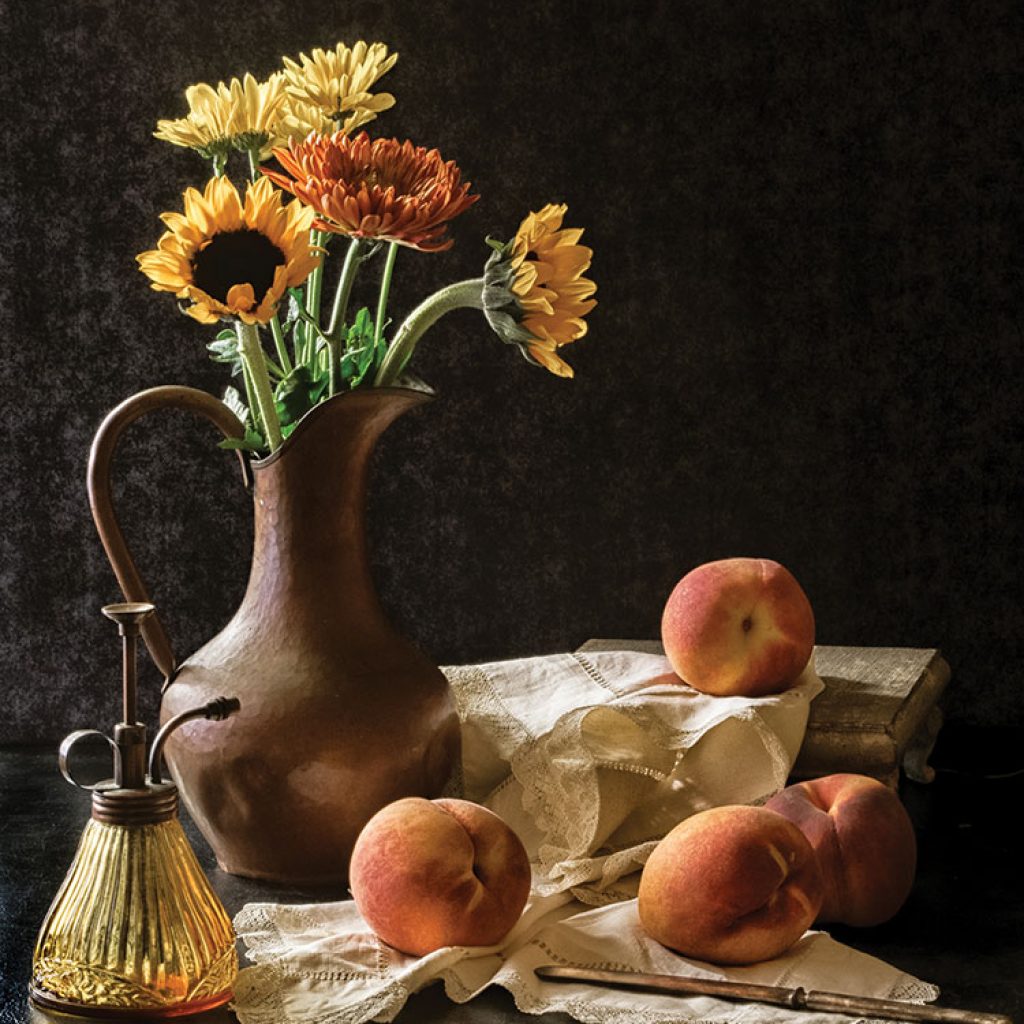
Cape Cod Art Center Camera Club
“The camera club at the Cape Cod Art Center is a place where like-minded people can share their hobby, improve their skills, and make lifelong friends,” says Scott D’Amato, the club’s vice chair.
With its emphasis on education, mentoring and practicums, the club was founded in 2008 by Executive Director Roberta Miller, who was president of the board of directors at the time, and who is also a photographer. She envisioned a club that embraced all things photographic. “Skill level is not an issue. You just have to love photography,” says D’Amato.
Fran McDermott, the club’s chair, emphasized that individual members help one another, sharing their experiences and knowledge. “Photography is part technical and part art form,” she says. “There’s a lot to learn and it’s never ending.”
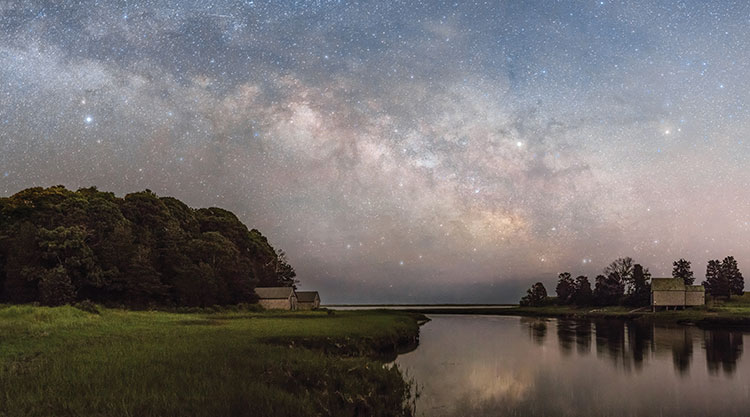
Past president and founding member John Tunney says that every camera on the market is excellent. “If you know what you’re doing, no one is going to know if it’s a three-thousand-dollar or a three-hundred-dollar camera.” For Tunney, who teaches photography and exhibits and sells his work at art fairs all over the Cape and throughout New England, the tools now available to photographers are so powerful that it’s easy for photographers to go overboard. “It’s like listening to music through headphones and you keep turning up the volume until you can’t hear anymore,” he says. His approach to photography is more like a painter’s, and he says he looks at more paintings than photographs. “When I shoot I’m looking for things that are expressive, that look like they have something to say,” he explains, “and then I have to figure out how to get that feeling across.”
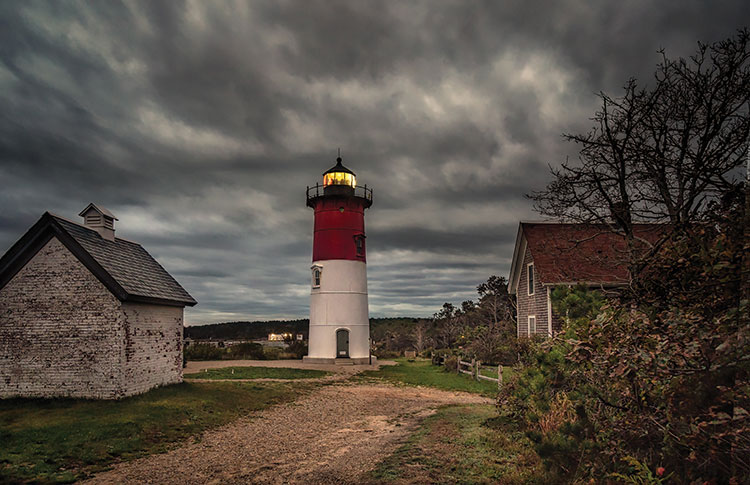
Cape Cod Viewfinders Camera Club
“Viewfinders is not laid back, in many ways,” says former president Michael Karchmer. “Historically we’re known as a competitive group. We try to teach the less experienced photographers the rules that make a sound picture, for instance, the rule of thirds and keeping the horizon straight. We see competition as a way to make your photography better.”
There is traditional, mainstream photography that preserves visual academic traditions, and then there are the photographers who go “where dragons be,” quoting the line that used to signify uncharted area on navigational charts. Joann Eldridge, a former high school English teacher, has been shooting seriously for about nine years. At one point she switched to the iPhone and never looked back. “I do street photography and I feel it’s the best camera for that because it’s not intrusive,” she says.
Barbara Markus, another iPhotographer, likes the spontaneity of the iPhone. “I can get an image out on social media fast,” she says. “It has its limitations, but every camera has limitations. Since I’ve taken up photography, I see the world like I’ve never seen it before.”
Viewfinders member Linda Bodin previously had a career in healthcare software. With her job she traveled up and down the East Coast. She always carried a camera, but she was a single mother and art didn’t pay the bills. Until she retired five years ago, art was on the back burner. She joined Viewfinders two years ago to become a better photographer. “I can see the difference in my work since joining,” she says. Her current project is a series of 100 eight-by-eight-inch images, printed on canvas, which she’ll then paint. “It may seem like a departure from traditional photography, but I look at photography like I’m creating a painting, and I like playing with the images more,” she says.
One never knows where creativity may lead. For example, the images Harwich-based photographers Michael and Suz Karchmer display on their website—production shots of entertainment events that are sharp, in-focus, and overlaid with a few Photoshop filters—may have a very good chance of being even more relevant 150 years from now. This, in the end, is the power of images. They show our daily life, what we do, what we look like, how we entertain ourselves, and what we value based on what we choose to photograph and how we present it. These images that are being manufactured daily are all part of the historical record, collected by enthusiasts in flea markets and antique stores. They’re snapshots of our moment in time.
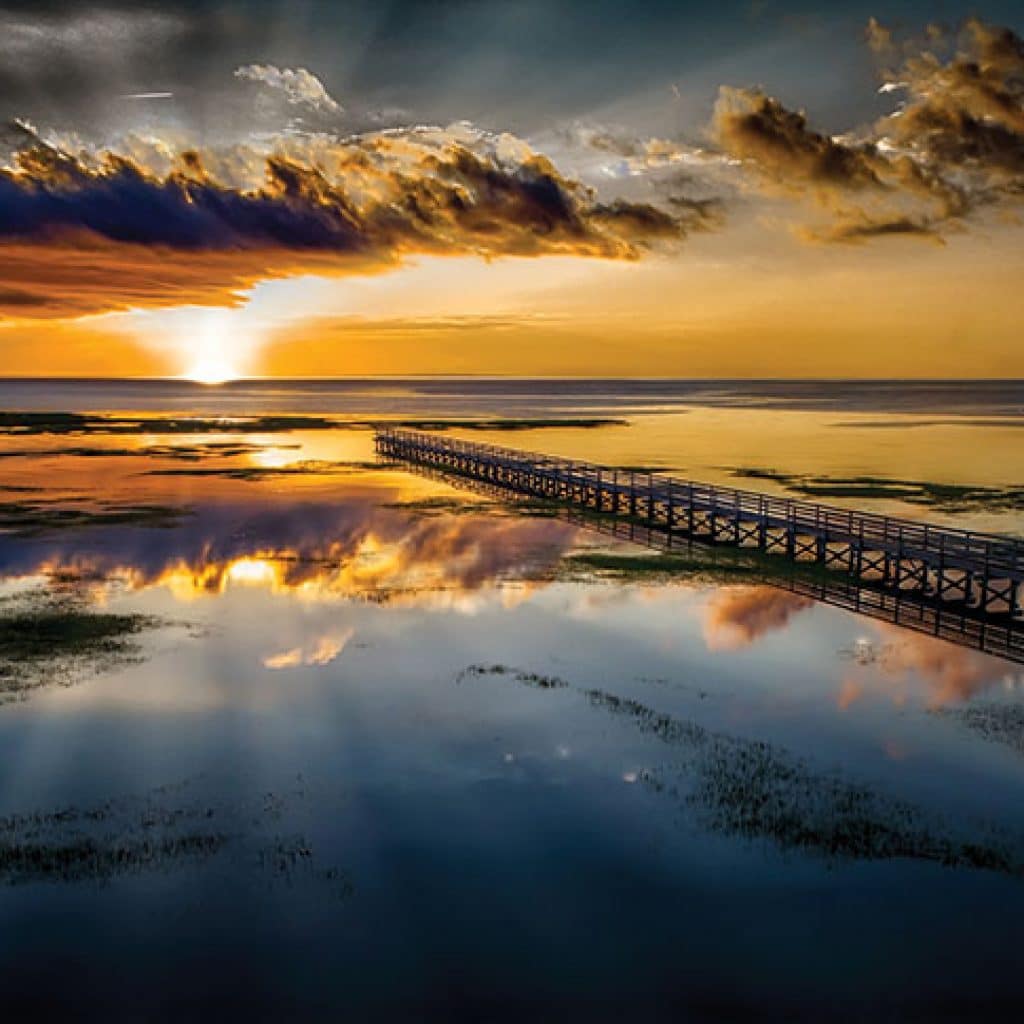
“Gray’s Beach Sunset” by James Walczak 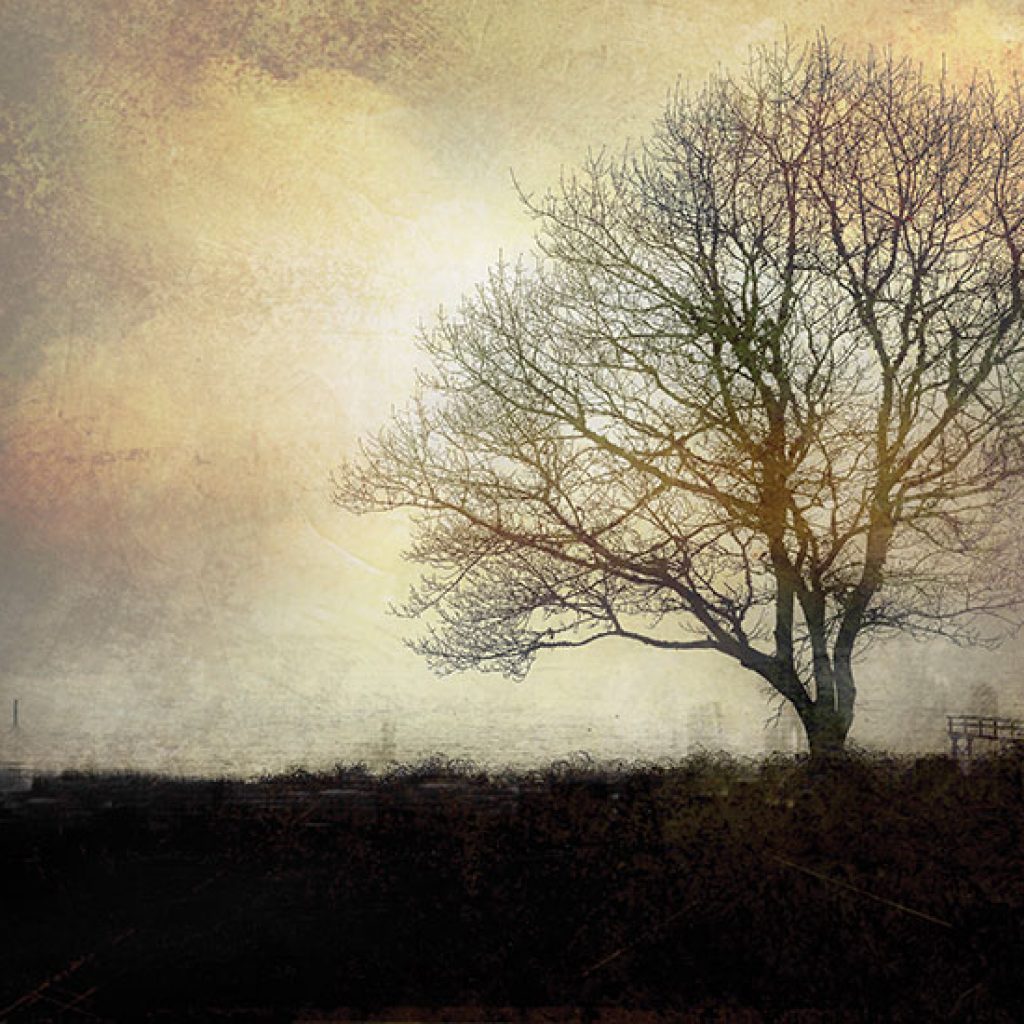
“winter tree in fog”
(shot on iphone) by debbie owen



